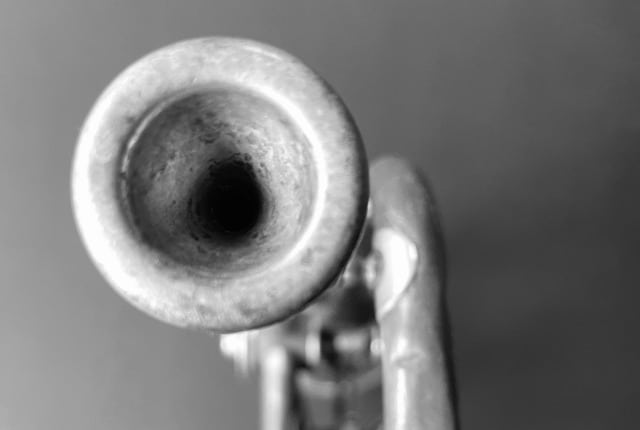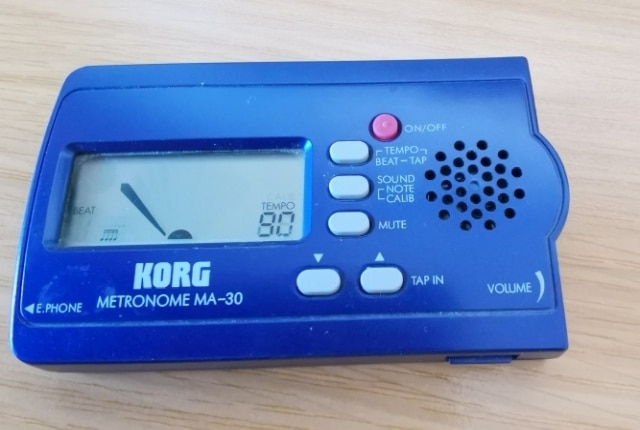If you want to get better at the trumpet, everyone knows that practice is the way to do that. As the saying goes ‘practice makes perfect’. However, not all trumpet practices are made equal. In this article, we will be detailing how to structure your trumpet practice effectively so that you will get better in no time.
Trumpet Practice Warm Up
It can be tempting to get straight into playing songs when you practice, but it is highly recommended that you do some kind of warm up beforehand. Warming up will help ease your facial muscles, steady your airstream, and improve your range.
A trumpet warm up does not have to be a daunting task, in fact, it can be kept very simple. You want to make sure that you are covering the basics such as your:
- embouchure
- posture
- breath
- articulation, and
- fingering.
If you implement a warm up into your practice, you should observe a noticeable difference in your playing ability during a practice.
Note
As trumpets are very loud instruments, consider getting good earplugs when you practice and when you perform. Practicing with earplugs is a good idea so you’re used to the decreased volume and the occlusion effect already and it’s not something new to adjust to during performance.
Practice regularly
Instead of practicing for a long time every now and then, it is a better option to practice for a short time regularly. Practicing regularly helps turn practicing the trumpet into a habit rather than simply an occasion.
Make your practice part of your day by picking a certain time – maybe before work or before you go to sleep at night. (Get yourself a trumpet mute so you don’t get in trouble with your neighbors!)
Practice shorter, but more often
Practicing for a short period can be advantageous as the shorter time means you will need less motivation to get started. If your practice is structured effectively, you can get as much quality practice in a short session as a long session.
Practicing regularly for short periods will also help keep the practice sustainable and long-term. This is important as often when someone loses motivation for something, they give up practicing it. Keeping the practice short and regular will help keep you going even through low motivation.
Practice individual skills
Being a good trumpeter means being good at many aspects of trumpet playing such as tone, endurance, fingering etc. This is why it can be a good idea to practice individual skills rather than practicing all at once in a song.
Many trumpeters have a few areas of the trumpet that could use improvement. Practicing individual skills is a great way to improve these and level up your trumpet ability. There are many different trumpet study books to guide you in many different areas.
A lot of players find that they have a ‘weak link’ or an aspect of the trumpet that is bringing their ability down. By just training one aspect of the trumpet, you could improve your overall ability.
While practicing songs is one of the best practice regimens, sometimes it can be difficult to notice where your weak areas are. By practicing individual skills, you can more clearly see what areas you could improve on.
Looking for a teacher?
Want to get lessons at the comfort of your own home? Check out the course Learn to Play the Trumpet: Beginner to Pro Made the Easy Way* on Udemy! (See their full trumpet course line-up here*!)
Practice the trumpet without a trumpet
You may not always have your trumpet with you, but that does not mean you can’t do some practice to get better at it. One such practice technique is called ‘free buzzing’.
Free buzzing is when you hold the same embouchure as you would normally play and then buzz your lips. It can take a while to get used to this, but soon you may find that it translates into better trumpet playing.
Doing this can help improve your sound, tone, and especially endurance for when you play the trumpet. While this is a good option for when you do not have your trumpet, real trumpet playing will always be the number one way to practice.
End your practice with something fun
One great way to help with motivation when practicing is to end the practice session with something fun. This way you have something to look forward to throughout the practice, and your practice will stay in your mind as something positive.
To make your practice enjoyable, you could try out a new song, improvise, or play a song that you have already mastered. Like the short sessions mentioned before, this will help keep trumpet practice as a sustainable habit rather than something you give up on.
Ending with something fun and out of the box can also help you discover something new that you wouldn’t otherwise with normal practice. It can also help each practice feel unique and interesting instead of being the same thing over and over again.
At the end of the day, playing the trumpet is supposed to be fun and a strict practice can take a lot of the fun out of that.
Overall, these tips should help improve your trumpet practice and eventually increase your playing ability. Practice is not just about the amount of time you put in, but also how you structure and use that time. Keep on practicing!



